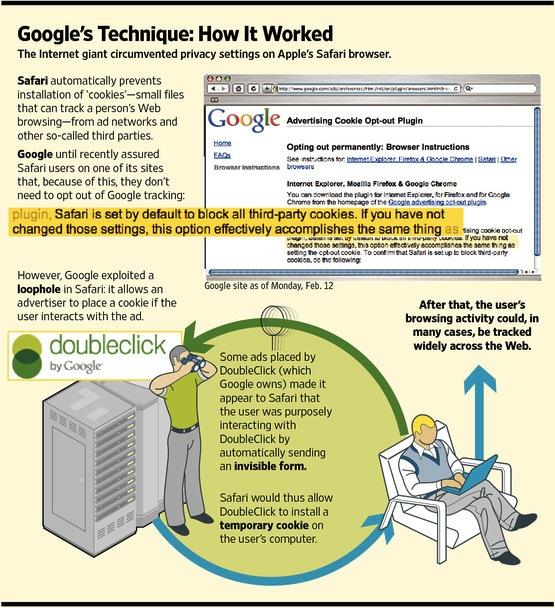Google set to pay record $22.5M fine for violating Apple users' privacy
Google is "close" to the settlement terms, officials familiar with the deal told The Wall Street Journal. The FTC has charged Google of tricking the Safari browser into accepting an advertising "cookie" file that allowed the company to track people's online activities, even if the user had disabled such tracking.
"The FTC is focused on a 2009 help center page," Google said in a statement. "We have now changed that page and taken steps to remove the ad cookies."
The search company has said the tracking of Safari users was inadvertent, and no harm was caused to consumers. But the FTC still believes that Google violated a 20-year deal the two entities signed last October, in which Google agreed to not misrepresent its privacy practices to consumers.
The deal between Google and the FTC amounts to a $16,000 fine per violation, per day. Noting that the FTC is a "relatively small federal agency," the Journal said the anticipated $22.5 million fine will be the largest ever imposed by the commission on a single corporation.
The FTC previously charged Google with using deceptive tactics when it launched its "Buzz" social network. That led to Google signing the consent decree, in which the company agreed to enact a number of privacy protecting measures.
Word first surfaced this May that the FTC was set to fine Google "tens of millions" of dollars for bypassing Safari privacy settings.
Google's cookie strategy would exploit a loophole in Safari, allowing an advertiser to place a cookie if the user interacted with an ad. Some ads placed by DoubleClick, which Google owns, would automatically send an invisible form to make it appear the user was interacting with an advertisement, which prompted Safari to allow DoubleClick to install a temporary cookie on the user's computer.
Apple was also subpoenaed by the FTC in March of this year as part of an ongoing antitrust investigation by the commission against Google. The FTC said it is "examining whether the company unfairly increases advertising rates for competitors and ranks search results to favor its own businesses, such as its networking site Google+."
 Sam Oliver
Sam Oliver











 William Gallagher
William Gallagher
 Malcolm Owen
Malcolm Owen
 Marko Zivkovic
Marko Zivkovic
 William Gallagher and Mike Wuerthele
William Gallagher and Mike Wuerthele

 Wesley Hilliard
Wesley Hilliard
 Andrew Orr
Andrew Orr








